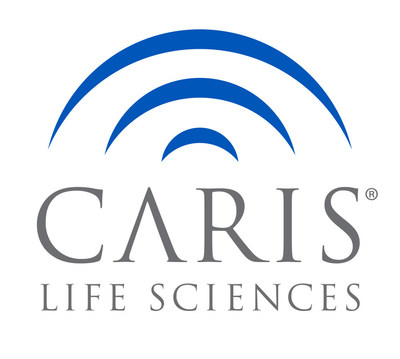Caris Life Sciences®(Caris), to present findings that provide a deeper understanding that tumor expression of genes related to extent of drug exposure, stratified by p53 status, is associated with clinical outcomes on the common chemotherapeutic regimens used to treat metastatic colorectal cancer (CRC).
| Data to be presented at the 2022 AACR annual meeting highlights the unique nature of post-chemotherapy derived gene expression signatures in stratifying patient outcomes IRVING, Texas, April 8, 2022 /PRNewswire/ -- Caris Life Sciences®(Caris), the leading molecular science and technology company actively developing and delivering innovative solutions to revolutionize healthcare, to present findings that provide a deeper understanding that tumor expression of genes related to extent of drug exposure, stratified by p53 status, is associated with clinical outcomes on the common chemotherapeutic regimens used to treat metastatic colorectal cancer (CRC). These results will be presented at the 2022 American Association for Cancer Research (AACR) Annual Meeting being held April 8 - 13, 2022 in New Orleans, Louisiana. The research with poster titled, “Prognostic and predictive drug-induced gene signatures for colorectal cancer patients personalized based on p53 status and treatment with FOLFOX, 5-FU, oxaliplatin or irinotecan” (Abstract #1231), was led by Wafik El-Deiry, M.D., Ph.D., FACP, Director of Brown University’s Legorreta Cancer Center, Associate Dean at the Warren Alpert Medical School, a member of Caris’ Precision Oncology Alliance (POA). Caris’ POA is a growing network of leading cancer centers across the globe that collaborate to advance precision oncology and biomarker-driven research. This work is being presented in New Orleans by Lindsey Carlsen, a Pathobiology graduate student in the EL-DEIRY Lab at Brown. The goal of this study was to identify predictive biomarkers for chemotherapies used in CRC. The study used CRC cell lines to identify differentially expressed genes following 5-fluorouracil, irinotecan, or oxaliplatin treatment and stratified the signatures based on p53 status. From these in vitro studies, the researchers then examined whether these genes and gene signatures could predict CRC patient outcomes following chemotherapy (FOLFOX, 5-fluorouracil, irinotecan or oxaliplatin). 2,983 wild-type and 6,229 loss-of-function p53 CRC patient samples were analyzed by DNA/RNA next-generation sequencing at Caris Life Sciences. Real-world survival outcomes were inferred from insurance claims data and Kaplan-Meier estimates. Both prognostic and non-prognostic gene expression had a significant effect on survival outcomes following specific drug treatments. “This study helps us understand the importance that gene signatures have in demonstrating an enhanced predictive ability compared to individual transcripts,” said El-Deiry. “Bridging basic and clinical research, this research allows us to better understand which therapies are more likely to benefit CRC patients.” The study found that tumor expression of genes related to drug exposure can predict outcomes after chemotherapy treatment:
“Caris is focused on biomarkers that can predict patient response to the newest therapies, but also tried and true chemotherapies like FOLFOX,” said W. Michael Korn, M.D., Chief Medical Officer at Caris. “We are excited to see the translational research capability empowered by the tremendous multi-omic data and analytical tools that Caris has developed and continues to make progress on.” Caris’ comprehensive molecular profiling assesses whole exome (DNA), whole transcriptome (RNA) and protein expression, providing an unmatched resource and the ideal path forward to conduct the translational research to accelerate discovery for detection, diagnosis, monitoring, therapy selection and drug development to improve the human condition. Caris will present additional data from studies demonstrating the critical role of precision medicine and molecular profiling in the treatment of cancer. All presentations will be made available online through Caris’ website beginning April 8, 2022. Additional Presentations Reveal Impact of Comprehensive Molecular Profiling and Potential Clinical Actionability
About Caris Life Sciences With a primary focus on cancer, Caris’ suite of market-leading molecular profiling offerings assesses DNA, RNA and proteins to reveal a molecular blueprint that helps patients, physicians and researchers better detect, diagnose and treat patients. Caris’ latest advancement, which is currently available within its Precision Oncology Alliance, is a blood-based, circulating nucleic acids sequencing (cNAS) assay that combines comprehensive molecular analysis (Whole Exome and Whole Transcriptome Sequencing from blood) and serial monitoring – making it the most powerful liquid biopsy assay ever developed. Headquartered in Irving, Texas, Caris has offices in Phoenix, New York, Denver, Tokyo, Japan and Basel, Switzerland. Caris provides services throughout the U.S., Europe, Asia and other international markets. To learn more, please visit CarisLifeSciences.com or follow us on Twitter (@CarisLS). Caris Life Sciences Media Contact:
SOURCE Caris Life Sciences |





